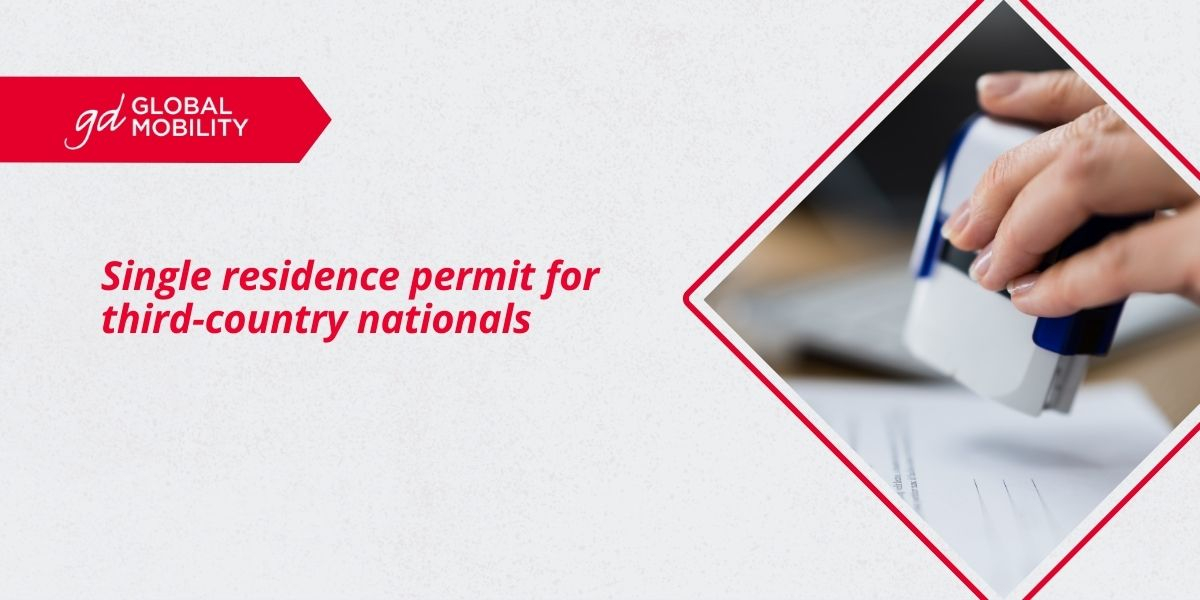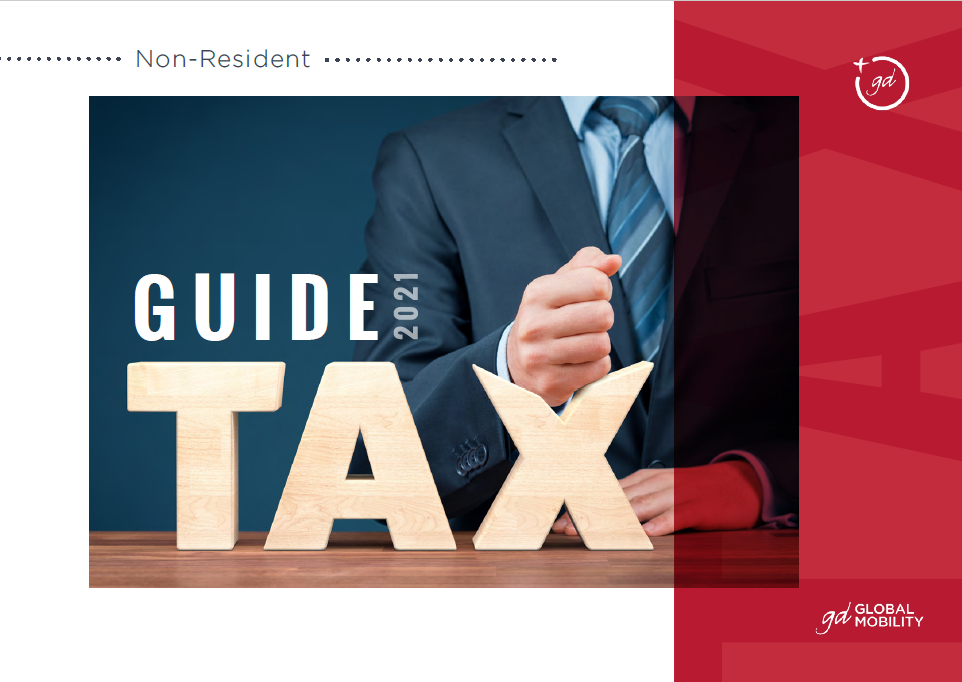
On April 30, 2024, Directive (EU) 2024/1233 was published in the OJEU, which introduces a single permit application procedure for third-country nationals to reside and work in the European Union, with the main goal of attracting the skills and talent needed by the EU and addressing the shortcomings regarding its legal migration.
What is the purpose of this Directive?
This law is aimed at regulating the procedure and guarantees for residence permits involving authorization to work as an employee.
What will this single work and residence permit cover?
It will cover both the right to work and the right to reside in the European Union. In addition, this new permit will also establish a common set of rights for third-country workers.
What rights are involved in granting the interested party the single permit?
The single permit issued will entitle its holder, for its period of validity, to:
- enter and reside in the territory of the EU Member State that issued the single permit, provided the holder meets all the conditions for admission in accordance with national law;
- enjoy free access to the entire territory of the issuing Member State, within the limits provided for by national law;
- Work under the single permit in accordance with the relevant national law.
- be informed of their own rights associated with the permit and conferred by way of this Directive or other provisions of EU or national law.
In addition, the Directive also states that these third-country workers will have the same treatment as workers who are nationals of the Member State in which they reside in the following matters:
- employment and working conditions, including remuneration, dismissal, working hours, leave and vacations, and the equal treatment of men and women, as well as occupational health and safety;
- the right to strike and to union action, and to freedom of association, affiliation and participation in workers' or employers' organizations or in any professional organization, including the rights and benefits that such organizations may provide, such as the right to negotiate and enter into collective agreements.
- education and vocational training;
- the recognition of diplomas, certificates and other professional qualifications, in accordance with applicable national procedures;
- branches of social security;
- tax benefits, provided the employee is considered a resident for tax purposes in the Member State concerned;
- access to goods and services and the procurement of goods and services offered to the public, including the procedures for access to public and private housing provided for in national law, regardless of the right to freedom of contract in accordance with EU and national law;
- counseling and information services provided by employment offices.
Insofar as the single application procedure, it will be up to the Member States to determine whether the application should be submitted by the third-country national or by the employer themselves (although the option is also provided that Member States may allow either of them to submit the application).
In terms of the duration of the procedure, the competent authority must make a decision on the application for a single permit as soon as possible and, in any case, within 90 days from the date of submission of a full application.
The possibility of switching employer
This single permit must authorize its holder to switch employers during its period of validity.
In this regard, when the holder of a single permit switches employer, the new employer must report the employment data to the competent authorities in accordance with the procedures established in the corresponding national law.
However, a change in the terms and conditions of employment, such as the employer's address, usual place of work, working hours and remuneration, does not in itself constitute a switch of employer, as indicated in the Directive itself.
In addition, it is also important to remember that there is a minimum period during which the holder of the single permit must work for the first employer (6 months, although this may be reduced in exceptional cases)
What happens in the case of unemployment?
This new single permit must not be withdrawn for a minimum period of 3 months in case of unemployment or 6 months if the third country national has held the single permit for more than 2 years.
During periods of unemployment exceeding 3 months, Member States should be able to require holders of the single permit to provide proof that they have sufficient resources to support themselves.
To whom does this Directive not apply?
This Directive does not apply to third country nationals who:
- are members of the family of EU citizens who have exercised or are exercising their right to free movement within the EU.
- enjoy, together with their family members and irrespective of their nationality, rights of free movement equivalent to those of EU citizens under agreements between the EU and its Member States or between the EU and third countries;
- are displaced, for as long as they are displaced;
- have applied for admission to the territory of a Member State as intra-corporate transferees or have been admitted as such.
- have applied for admission or have been admitted to the territory of a Member State as seasonal workers under Directive 2014/36/EU or as au pairs;
- who have been authorized to reside in a Member State under temporary protection or have applied for a residence permit for the same reason and are awaiting a decision on their status;
- who enjoy international protection or who have applied for international protection, without a final decision having yet been made on their application;
- who enjoy protection in accordance with national law, international obligations or the practices of a Member State, or who have applied for protection in accordance with national law, international obligations or the practices of a Member State, without a final decision having yet been made on their application;
- who are long-term residents;
- whose expulsion has been suspended for reasons of fact or law;
- who have applied for admission to the territory of a Member State as self-employed
- who have applied for admission as seafarers for the purpose of employment or work in any capacity on board ships registered in or flying the flag of a Member State, or have been admitted as such.
Entry into force and transposition of the Directive
The new Directive (EU) 2024/1233 will enter into force 20 days after its publication in the Official Journal of the European Union. However, it should be noted that different provisions will apply as of May 22, 2026.
Member States should be aware that they have 2 years to transpose the provisions of the Directive into their domestic legal system and, therefore, as of today, companies still have time to comply with the provisions included in this new regulation.
Conclusions and main keys
- This Directive will introduce a single residence and work permit in the territory of the Member State and a common set of rights for these workers based on equal treatment with EU citizens.
- This authorization allows for freedom of movement within the Schengen territory for a maximum of 3 months .
- As it is a single permit, it allows for a switch of employer upon notification to the competent authority.
- This authorization may be applied for from the third country, from the Member State, while holding a residence permit and in a situation of legal stay, if the Member State considers it to be in compliance with its national law.
- The resolution by the designated authority is made in a single administrative act, within a period not exceeding 90 days.
- Member States should endeavor to issue the visa required to obtain a single permit in a timely manner.
Each Member State will transpose this directive through its own national legislation. It is important to mention that this publication, as it is a Directive and not a Regulation, offers each Member State this margin of action to transpose the provisions according to its national legislation.
In short, the aim is to establish minimum common procedures for the issue of authorizations giving the right to work as an employee.
Do you need help in processing residence and work applications?
At Gesdocument, we have teams of international mobility experts who can advise you and help you process applications for residence and work permits.
Contact us if you would like to receive more information about our services.



